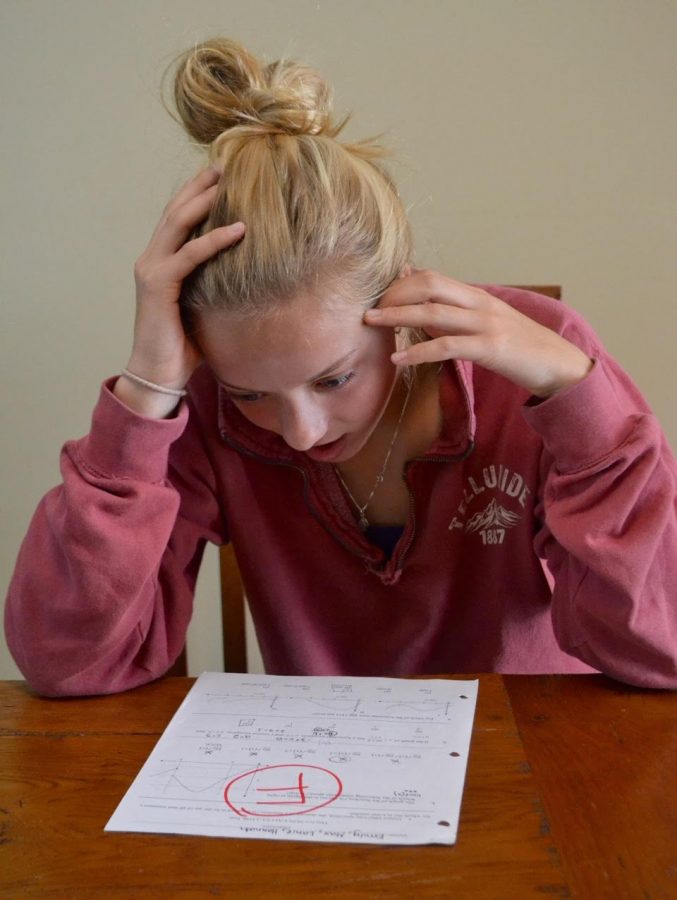Lack of gradebook variety kills grades
October 28, 2016
The typical pen and paper assessment is a great way to measure a student’s understanding in a particular topic, but that doesn’t mean it should be an end all be all for a student’s grade.
Not only are there smart kids who are bad test-takers, but often times the tests don’t reward the students who truly put in the effort. This problem is especially prevalent in math and more specifically geometry where assessments account for 90 percent of the student’s grade, dedicating the remaining 10 percent to homework. Homework in math is assigned daily and usually involve textbook problems. So, it simply isn’t fair that only 10 percent of our grade is reflected from the daily grind of math homework. To be honest, we could all save time by not doing our math homework and it wouldn’t harm our grade too much.
According to Concordia University in Portland, Oregon, test-taking is not an accurate measurement of student’s intelligence. The author claims that since each student has different test taking abilities, the truly “smart” students aren’t getting credited for it in some cases. For example, if a student completes all in-class assignments with ease and seem to grasp the topic well but, for whatever reason, have test-taking anxiety, they most likely will not perform well on the test. Likewise, one’s mental state may affect their test-taking ability. It is possible that a student got minimal hours of sleep or didn’t eat a nutritious breakfast, which are both key factors in good test preparation.
However, some might say that assessments are the best way to judge a student’s intelligence. Their argument is that since tests are focused on the individual, the student cannot rely on others to impact their grade. While there is some validity to that statement, the many negative variables such as lack of time, poor preparation, or even cheating override that argument.
Don’t worry: there is light at the end of the tunnel. There are several possible solutions for this problem. First, math classes could add more extra credit opportunities for students who don’t exceed on tests. This would compensate for the grade lost on assessments. Extra credit opportunities could tell the teacher which students are willing to go the extra mile to benefit their grade. Another logical solution is more group projects. Not only would this teach the students the valuable skill of interacting with their peers, but it could allow for a more engaging learning experience.




















